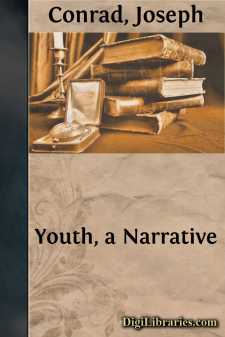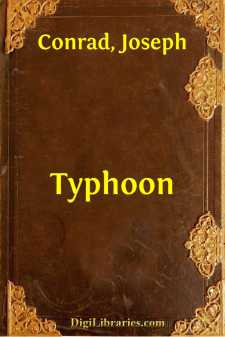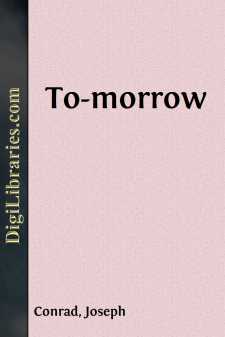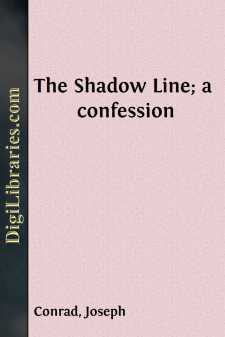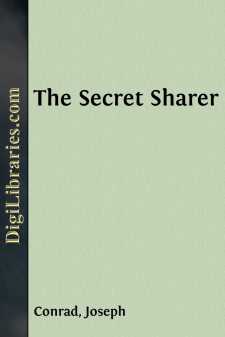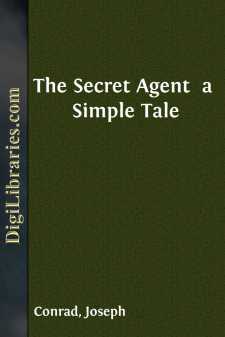Categories
- Antiques & Collectibles 13
- Architecture 36
- Art 48
- Bibles 22
- Biography & Autobiography 813
- Body, Mind & Spirit 142
- Business & Economics 28
- Children's Books 15
- Children's Fiction 12
- Computers 4
- Cooking 94
- Crafts & Hobbies 4
- Drama 346
- Education 46
- Family & Relationships 57
- Fiction 11829
- Games 19
- Gardening 17
- Health & Fitness 34
- History 1377
- House & Home 1
- Humor 147
- Juvenile Fiction 1873
- Juvenile Nonfiction 202
- Language Arts & Disciplines 88
- Law 16
- Literary Collections 686
- Literary Criticism 179
- Mathematics 13
- Medical 41
- Music 40
- Nature 179
- Non-Classifiable 1768
- Performing Arts 7
- Periodicals 1453
- Philosophy 64
- Photography 2
- Poetry 896
- Political Science 203
- Psychology 42
- Reference 154
- Religion 513
- Science 126
- Self-Help 84
- Social Science 81
- Sports & Recreation 34
- Study Aids 3
- Technology & Engineering 59
- Transportation 23
- Travel 463
- True Crime 29
Joseph Conrad
Joseph Conrad, born Józef Teodor Konrad Korzeniowski in 1857 in Poland, was a prominent British novelist known for his rich narrative style and profound exploration of the human psyche. His most famous works, such as "Heart of Darkness" and "Lord Jim," delve into themes of colonialism, morality, and existentialism. Despite English being his third language, Conrad's mastery of the language and innovative literary techniques have cemented his legacy as a central figure in modern literature.
Author's Books:
Sort by:
by:
Joseph Conrad
YOUTH This could have occurred nowhere but in England, where men and sea interpenetrate, so to speak—the sea entering into the life of most men, and the men knowing something or everything about the sea, in the way of amusement, of travel, or of bread-winning. We were sitting round a mahogany table that reflected the bottle, the claret-glasses, and our faces as we leaned on our elbows. There was a...
more...
by:
Joseph Conrad
On approaching the task of writing this Note for Victory, the first thing I am conscious of is the actual nearness of the book, its nearness to me personally, to the vanished mood in which it was written, and to the mixed feelings aroused by the critical notices the book obtained when first published almost exactly a year after the beginning of the war. The writing of it was finished in 1914 long...
more...
by:
Joseph Conrad
PART FIRST To begin with I wish to disclaim the possession of those high gifts of imagination and expression which would have enabled my pen to create for the reader the personality of the man who called himself, after the Russian custom, Cyril son of Isidor—Kirylo Sidorovitch—Razumov. If I have ever had these gifts in any sort of living form they have been smothered out of existence a long time...
more...
by:
Joseph Conrad
I Captain MacWhirr, of the steamer Nan-Shan, had a physiognomy that, in the order of material appearances, was the exact counterpart of his mind: it presented no marked characteristics of firmness or stupidity; it had no pronounced characteristics whatever; it was simply ordinary, irresponsive, and unruffled. The only thing his aspect might have been said to suggest, at times, was bashfulness; because...
more...
by:
Joseph Conrad
What was known of Captain Hagberd in the little seaport of Colebrook was not exactly in his favour. He did not belong to the place. He had come to settle there under circumstances not at all mysterious—he used to be very communicative about them at the time—but extremely morbid and unreasonable. He was possessed of some little money evidently, because he bought a plot of ground, and had a pair of...
more...
by:
Joseph Conrad
I Only the young have such moments. I don't mean the very young. No. The very young have, properly speaking, no moments. It is the privilege of early youth to live in advance of its days in all the beautiful continuity of hope which knows no pauses and no introspection. One closes behind one the little gate of mere boyishness—and enters an enchanted garden. Its very shades glow with promise....
more...
by:
Joseph Conrad
On my right hand there were lines of fishing stakes resembling a mysterious system of half-submerged bamboo fences, incomprehensible in its division of the domain of tropical fishes, and crazy of aspect as if abandoned forever by some nomad tribe of fishermen now gone to the other end of the ocean; for there was no sign of human habitation as far as the eye could reach. To the left a group of barren...
more...
by:
Joseph Conrad
CHAPTER I Mr Verloc, going out in the morning, left his shop nominally in charge of his brother-in-law. It could be done, because there was very little business at any time, and practically none at all before the evening. Mr Verloc cared but little about his ostensible business. And, moreover, his wife was in charge of his brother-in-law. The shop was small, and so was the house. It was one of...
more...
by:
Joseph Conrad
PART I. THE MAN AND THE BRIG The shallow sea that foams and murmurs on the shores of the thousand islands, big and little, which make up the Malay Archipelago has been for centuries the scene of adventurous undertakings. The vices and the virtues of four nations have been displayed in the conquest of that region that even to this day has not been robbed of all the mystery and romance of its past—and...
more...
by:
Joseph Conrad
I Napoleon the First, whose career had the quality of a duel against the whole of Europe, disliked duelling between the officers of his army. The great military emperor was not a swashbuckler, and had little respect for tradition. Nevertheless, a story of duelling which became a legend in the army runs through the epic of imperial wars. To the surprise and admiration of their fellows, two officers,...
more...


